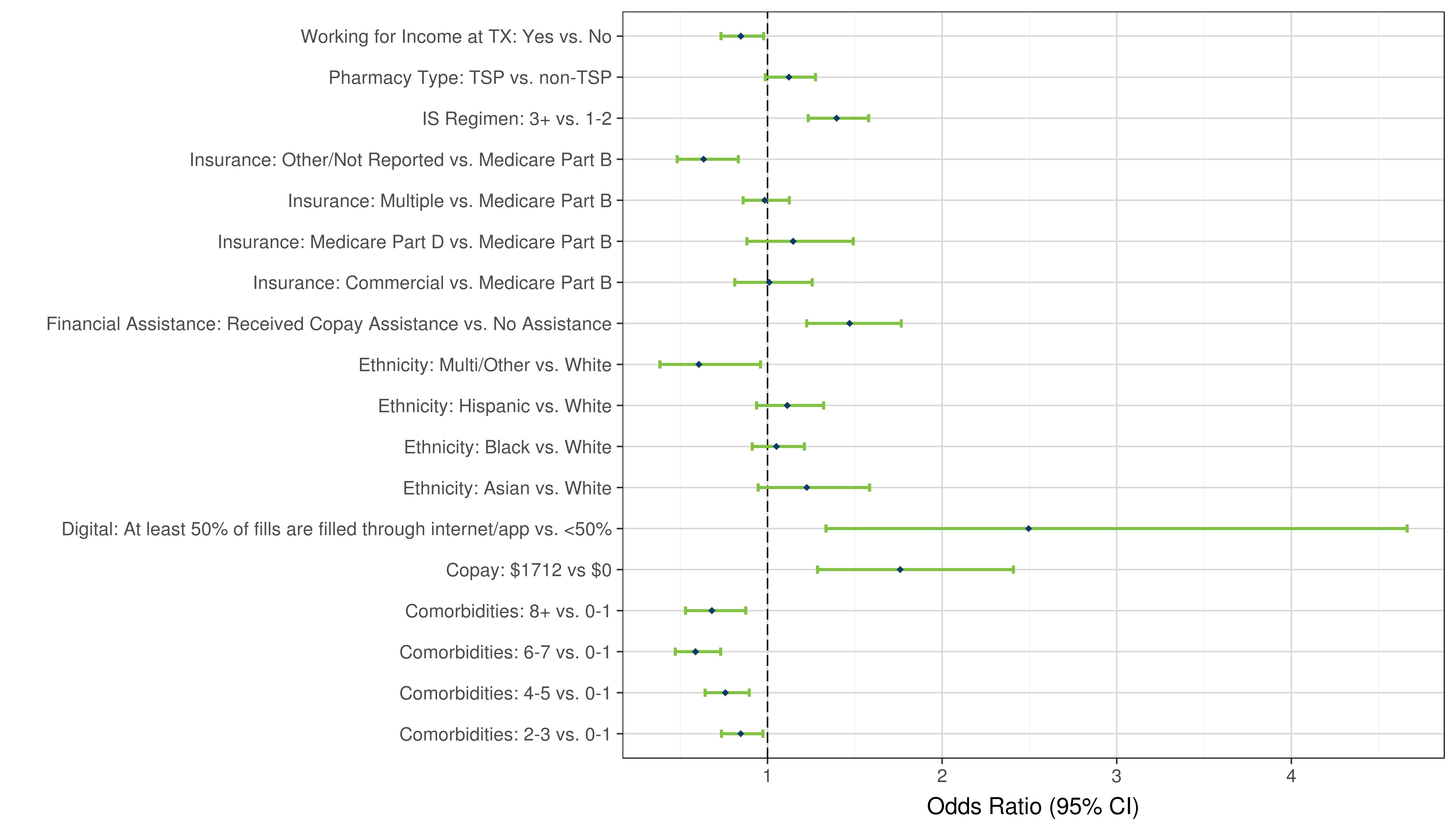Characteristics Associated with Immunosuppressant Adherence after Deceased Donor Kidney Transplant
A. R. Wilk1, W. S. Cherikh1, J. Maghirang1, E. A. Witt2, H. Kirkham2, S. Boghani2, N. Hira3, G. Pietradoni2, D. K. Klassen1
1United Network for Organ Sharing, Richmond, VA, 2Walgreen Co, Deerfield, IL, 3AllianceRx Walgreens Prime, Orlando, FL
Meeting: 2019 American Transplant Congress
Abstract number: D319
Keywords: Immunosuppression, Kidney, Multivariate analysis
Session Information
Session Name: Poster Session D: Psychosocial and Treatment Adherence
Session Type: Poster Session
Date: Tuesday, June 4, 2019
Session Time: 6:00pm-7:00pm
 Presentation Time: 6:00pm-7:00pm
Presentation Time: 6:00pm-7:00pm
Location: Hall C & D
*Purpose: Without adherence to immunosuppressant (IS) medication, renal allografts will likely not last in transplant (TX) recipients, which may result in progressively worsened renal function and lead to relisting/retransplant or even death.
*Methods: Prescription claims data for IS medications from a single, large national pharmacy chain during 2013-2016 were merged with the Organ Procurement and Transplant Network database. The analysis cohort was limited to adult recipients of deceased donor kidney alone, TXs performed within a year (± 90 days) prior to the first fill, and who had at least two pharmacy claims for any IS at least 150 days apart in the 12-months after their first fill during the study period. The analysis was further conditioned on 2-year graft survival, which resulted in 5,275 recipients TXed from 2011-2015. In this study, adherence to IS medication is defined as proportion of days covered by pharmacy claims >= 90%, and an explanatory model was developed using multivariable logistic regression.
*Results: Sixty percent (N=3,162) of recipients were adherent. In the presence of other covariates (Figure 1), filling at a TX specialized pharmacy (TSP), having a more complex IS regimen, receiving financial assistance, filling prescriptions digitally, and higher copays were positively associated with adherence. Other insurance plans vs. Medicare Part B, patients who worked for income at time of transplant, patients of multiracial/other ethnic group vs. White, and higher comorbidity scores based on the number of prescriptions for chronic conditions were negatively associated with adherence.
*Conclusions: Various patient, donor, and transplant factors are associated with IS adherence after kidney TX, many of which are financial and insurance-related characteristics. Future studies should evaluate whether characteristics of adherence vary across organs or specific IS medication.
To cite this abstract in AMA style:
Wilk AR, Cherikh WS, Maghirang J, Witt EA, Kirkham H, Boghani S, Hira N, Pietradoni G, Klassen DK. Characteristics Associated with Immunosuppressant Adherence after Deceased Donor Kidney Transplant [abstract]. Am J Transplant. 2019; 19 (suppl 3). https://atcmeetingabstracts.com/abstract/characteristics-associated-with-immunosuppressant-adherence-after-deceased-donor-kidney-transplant/. Accessed February 15, 2026.« Back to 2019 American Transplant Congress

